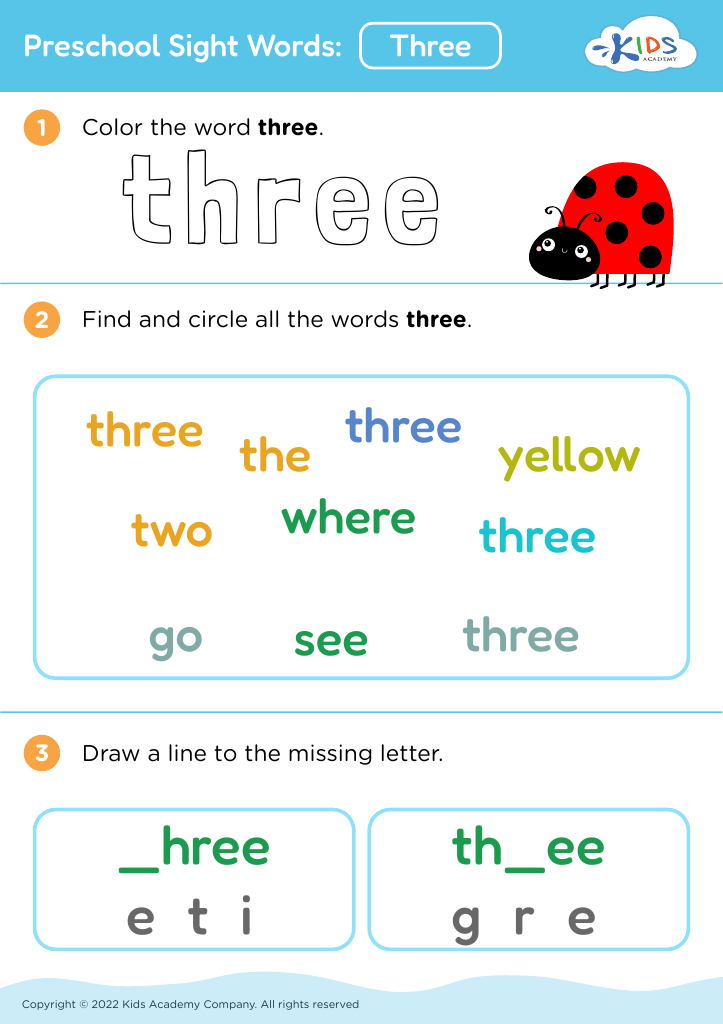Multiplication practice Reading Worksheets for 5-Year-Olds
3 filtered results
-
From - To
Unlock the world of math for your 5-year-old with our engaging Multiplication Practice Reading Worksheets! Designed with young learners in mind, these worksheets blend playful activities with essential multiplication concepts, making learning enjoyable and effective. Each worksheet utilizes colorful illustrations and simple problems to capture your child's interest while gradually building their confidence in math. Perfect for hands-on practice and homeschool settings, our resources support foundational skills that prepare children for future academic success in mathematics. Enhance your child's early learning experience today by downloading our interactive and educational multiplication worksheets tailor-made for young learners!
Developing foundational math and reading skills at an early age is crucial for the overall academic growth and future success of children. For 5-year-olds, practicing multiplication and engaging in reading activities foster not only cognitive development but also critical thinking, problem-solving, and comprehension skills. Multiplication, although challenging for young children, introduces them to patterns, sequences, and the concept of grouping, which are foundational to advanced mathematical concepts they will encounter in later grades.
Similarly, early reading practices enhance vocabulary, improve language skills, and ignite creativity and imagination. These reading sessions also help children develop focus, patience, and the ability to comprehend and analyze stories, which are essential skills in all areas of learning. When parents or teachers dedicate time to multiplication and reading practice, they provide children with essential tools for academic success and instill confidence in their abilities.
Furthermore, these activities can be a fun and interactive way for children to learn, making use of games and storytelling to maintain their interest and engagement. Through consistent practice and support, children develop a love for learning and are better prepared for the more complex concepts they will face in the future. Therefore, investing time in multiplication and reading practice for young learners is critical in laying a strong educational foundation.




















